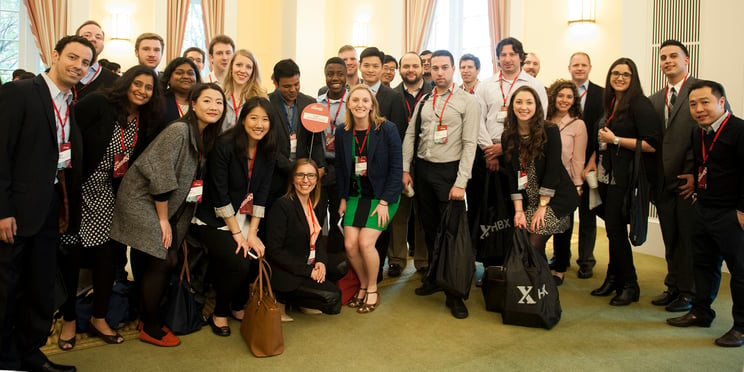
Participating in the pilot cohort of Managing Your Career Development was a whole new experience for me. When I got selected, I was enthusiastic about the topics we'd be covering and excited to take part in a course held entirely in the HBX Live virtual studio, but the course far exceeded my expectations.
Here are four ways the course prepared me to navigate my career more effectively:
1. It Moves You!
This is not just a class where you show up to just sit and listen. It spurs you into action. You are asked to work together with other students and to reflect on your own life experiences. You come across many familiar situations in the cases you study, but also new ones that encourage you to problem solve in an intelligent way.
2. The Real Class Experience
Despite being held in a virtual classroom, Managing Your Career Development gives you a real classroom experience and face-to-face interaction with a number of top-notch Harvard Business School faculty members.
From absorbing insights from different professors, to interacting with your fellow students in discussions and always being prepared for the possibility of a cold call, it is an exciting and engrossing way to learn! It's important to give the class session your full attention, because it's easy to miss valuable information otherwise.
3. Diversity in a Nutshell
Each session is taught by a different professor with their own style of teaching and topic of expertise. This diversity in a short time span makes the experience unique. It also forces you to broaden your mindset and to take all different aspects of each class with you to the next one.
4. A Network to Build Upon
Most students from my cohort who participated in Managing Your Career Development are at a certain point in their career where they want a change or are ready to take the next steps. This is a powerful network. Not only do you interact live with each other in class, but there are also discussions outside of class to prepare for the next session. You learn a lot from the others and also about yourself. It's challenging but fulfilling.
This was a valuable experience, and I'm so glad to have had it. I apply all that I learned time and time again, and the course has enabled me to take the next steps in my career.










